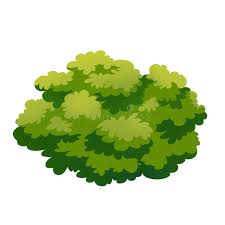The Gardener and the Currant Bush
In the early dawn, a young gardener was pruning his trees and shrubs. He had one choice currant bush which had gone too much to wood. He feared therefore that it would produce little, if any, fruit.
Accordingly, he trimmed and pruned the bush and cut it back. In fact, when he had finished, there was little left but stumps and roots.
Tenderly he considered what was left. It looked so sad and deeply hurt. On every stump there seemed to be a tear where the pruning knife had cut away the growth of early spring. The poor bush seemed to speak to him, and he thought he heard it say:
"Oh, how could you be so cruel to me, you who claim to be my friend, who planted me and cared for me when I was young, and nurtured and encouraged me to grow? Could you not see that I was rapidly responding to your care? I was nearly half as large as the trees across the fence, and might soon have become like one of them. But now you've cut my branches back; the green, attractive leaves are gone, and I am in disgrace among my fellows."
The young gardener looked at the weeping bush and heard its plea with sympathetic understanding. His voice was full of kindness as he said, "Do not cry; what I have done to you was necessary that you might be a prize currant bush in my garden. You were not intended to give shade or shelter by your branches. My purpose when I planted you was that you should bear fruit. When I want currants, a tree, regardless of its size, cannot supply the need."
"No, my little currant bush, if I had allowed you to continue to grow as you had started, all your strength would have gone to wood; your roots would not have gained a firm hold, and the purpose for which I brought you into my garden would have been defeated. Your place would have been taken by another, for you would have been barren. You must not weep; all this will be for your good; and some day, when you see more clearly, when you are richly laden with luscious fruit, you will thank me and say, 'Surely, he was a wise and loving gardener.' He knew the purpose of my being, and I thank him now for what I then thought was cruelty.'"
Some years later, this young gardener was in a foreign land, and he himself was growing. He was proud of his position and ambitious for the future.
One day an unexpected vacancy entitled him to promotion. The goal to which he had aspired was now almost within his grasp, and he was proud of the rapid growth which he was making.
But for some reason unknown to him, another was appointed in his stead, and he was asked to take another post relatively unimportant which, under the circumstances, caused his friends to feel that he had failed.
The young man staggered to his tent and knelt beside his cot and wept. He knew now that he could never hope to have what he had thought so desirable. He cried to God and said, "Oh, how could you be so cruel to me? You who claim to be my friend -- you who brought me here and nurtured and encouraged me to grow. Could you not see that I was almost equal to the other men whom I have so long admired? But now I have been cut down. I am in disgrace among my fellows. Oh, how could you do this to me?"
He was humiliated and chagrined and a drop of bitterness was in his heart, when he seemed to hear an echo from the past. Where had he heard those words before? They seemed familiar. Memory whispered: "I'm the gardener here."
He caught his breath. Ah, that was it -- the currant bush! But why should that long-forgotten incident come to him in the midst of his hour of tragedy? And memory answered with words which he himself had spoken:
"Do not cry...what I have done to you was necessary...you were not intended for what you sought to be, ... if I had allowed you to continue...you would have failed in the purpose for which I planted you and my plans for you would have been defeated. You must not weep; some day when you are richly laden with experience you will say, 'He was a wise gardener. He knew the purpose of my earth life...I thank him now for what I thought was cruel.'"
His own words were the medium by which his prayer was answered. There was not bitterness in his heart as he humbly spoke again to God and said, "I know you now. You are the gardener, and I the
currant bush. Help me dear God, to endure the pruning, and to grow as you would have me grow; to take my allotted place in life and ever more to say, 'Thy will not mine be done.'"
Another lapse of time in our story. Forty years have passed. The former gardener and officer sits by his fireside with wife and children and grandchildren. He tells them the story of the currant bush -- his own story; and as he kneels in prayer with them, he reverently says to God, "Help us all to understand the purpose of our being, and be ever willing to submit to thy will and not insist upon our own. We remember that in another garden called Gethsemane the choicest of all thy sons was glorified by submission unto thy will."
(Taken from a biography of Hugh B. Brown. He was an apostle & counselor in the 1st Presidency to Pres. McKay and died in 1975 at age 92)
You Can Watch a Video of the Currant Bush Story Here
Printable PDF Version of This Parable
